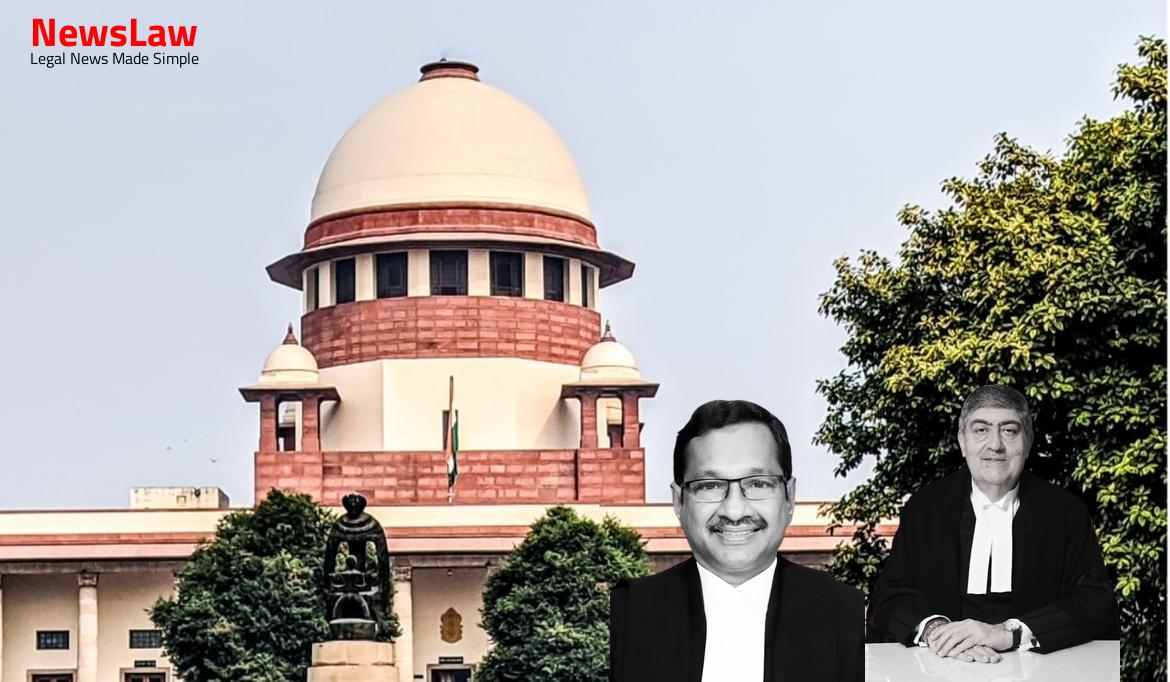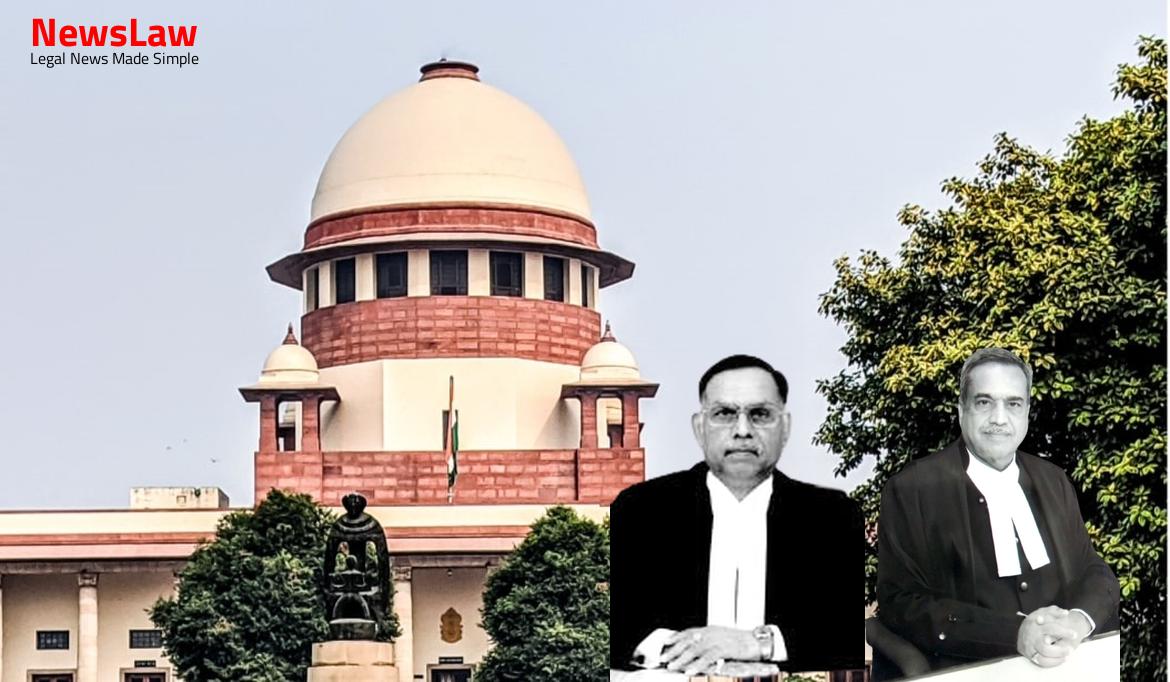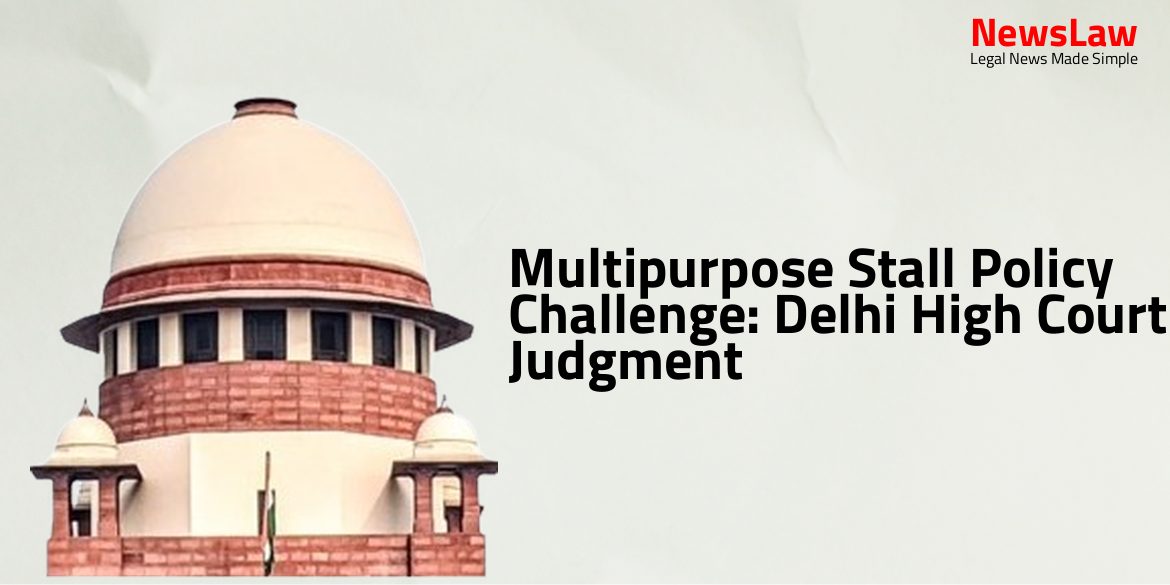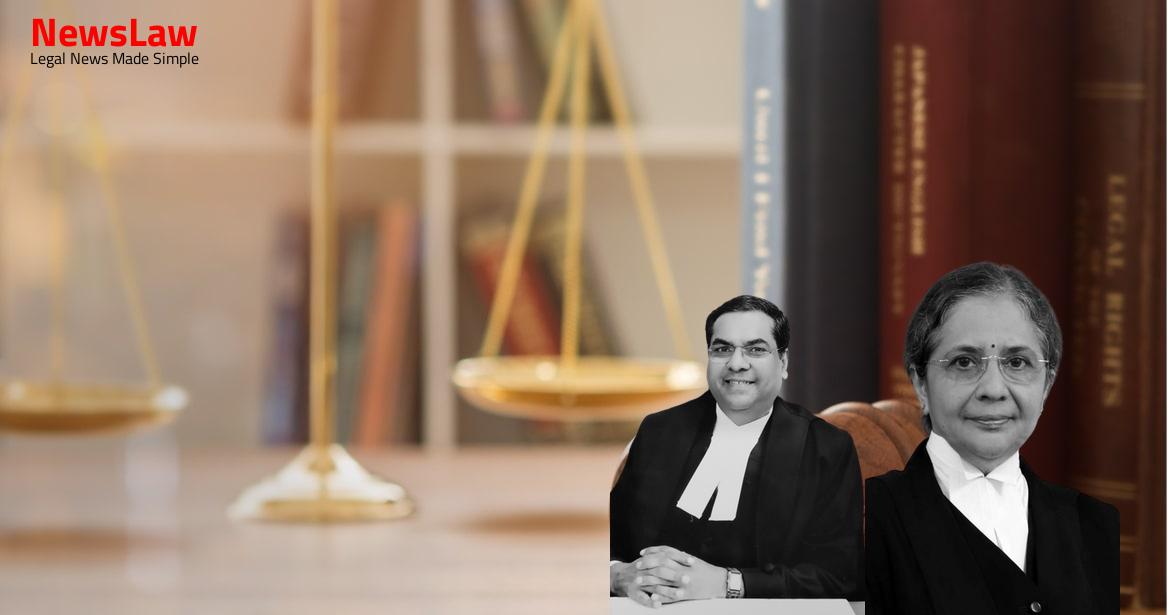Delve into the comprehensive legal analysis of a complex land dispute involving adverse possession. The court’s meticulous examination of the history, evidence, and legal proceedings sheds light on the intricacies of property disputes and the critical role of proper procedures in determining ownership. Follow the court’s assessment of testimonies, execution proceedings, and the significance of registered transactions in this compelling case.
Facts
- The court discussed the history of the land dispute, highlighting the long-standing nature of the conflict over 0.08 cents of land.
- The Appellant’s claim of adverse possession was upheld, supported by evidence from the Panchayat Board President.
- Details of the original owner and the various legal proceedings initiated by the Respondent were presented.
- The Sub-Court’s role in appointing the Taluk head surveyor for demarcation of the land was noted.
- Issues regarding the sale deeds and possession of the land by different parties over time were outlined.
- The crucial absence of the Respondent during the trial, which affected the case outcome, was emphasized.
- Diverging claims between the Appellant and the Respondent regarding the sale and ownership of the land were highlighted.
- The testimonies of witnesses, including the manager, were cited as critical pieces of evidence in the case.
- The overall complexity and intricacies of the dispute were illustrated through the detailed presentation of events and legal actions taken by both parties.
- The High Court allowed the second appeal and set aside the judgments of the lower courts.
- The High Court found that the courts below did not properly appreciate the evidence, especially regarding the execution proceedings.
- The delivery of 50 acres of land by the amin based on the surveyor’s plans was considered as proof of possession by the Respondent.
Also Read: Supreme Court Judgment on Single Till Mechanism for HRAB Calculation: A Comprehensive Analysis
Arguments
- The Appellant’s counsel argued that the High Court did not frame any substantial question of law in the case.
- It was highlighted that the Respondent did not testify in support of her own case, leading to a presumption that the case presented may not be accurate.
- The manager’s testimony revealed that he lacked authority to depose on behalf of the Respondent.
- It was emphasized that the Respondent possessed crucial knowledge of the alleged facts based on the manager’s deposition.
- Citing legal precedents such as Vidyadhar v. Manikrao and Anr. and Man Kaur (Dead) by LRs v. Hartar Singh Sangha, it was suggested that an adverse inference should be drawn against the Respondent due to the lack of direct testimony.
- Respondent and her daughter are old and do not have the means to pursue litigation.
- Appellant only had title to 70 acres of land.
- Appellant trespassed into 0.08 cents of the land, blocking the entrance to respondent’s land.
Analysis
- Courts may presume the existence of certain facts based on common events and human conduct.
- The delivery of possession was not valid due to improper procedure followed.
- The respondent’s manager’s testimony without proper authorization was not accepted.
- The High Court was criticized for re-examining evidence and disturbing lower court findings.
- The suit was for a small portion of land, but the decree obtained for specific performance was questioned.
- The respondent was aware of prior transactions on the same property but did not include relevant parties in the suit.
- The judgment highlighted the importance of proper procedures in property disputes.
- The evidence presented by the respondent lacked credibility as key facts were not testified to directly.
- The court emphasized that a decree obtained behind the real owners’ back could be considered a nullity.
- The High Court overstepped its jurisdiction by engaging in fact-finding rather than focusing on substantial legal questions.
- Registered transactions act as notice to all concerned parties.
- The respondent’s awareness of prior transactions affected the legitimacy of the decree obtained for specific performance.
- Judicial view in Surat Singh (Dead) v. Siri Bhagwan and Ors. supports the proposition.
- The Court held that the proposition was supported by a judgment in Lachhman Dass v. Jagat Ram and Ors.
- Section 19(b) of the Specific Relief Act, 1963 provides for relief against parties and persons claiming under them by subsequent title.
- Specific performance of a contract may be enforced as per this section.
- This section applies unless otherwise provided by the Chapter.
- It allows for the enforcement of specific performance against parties and persons claiming under them even if they obtained the title subsequently.
- The High Court should not have interfered with the findings of the trial court and the first appellate court.
- There are doubts regarding the manner of possession transfer but not relevant to the case as it involves a small land area.
- The case of Niraja Devi and subsequent purchasers, including the Appellant, fall within the exception of Section 19(b) of the Specific Relief Act as they paid in good faith without knowledge of the original contract.
Also Read: Selection and Appointment of Judicial Officers in Himachal Pradesh
Decision
- The suit of the Respondent has been dismissed by the trial court’s judgment.
- The dismissal has been affirmed by the first appellate court.
- There are no further details provided in the context for this summary.
Case Title: SEETHAKATHI TRUST MADRAS Vs. KRISHNAVENI (2022 INSC 48)
Case Number: C.A. No.-005384-005385 / 2014



